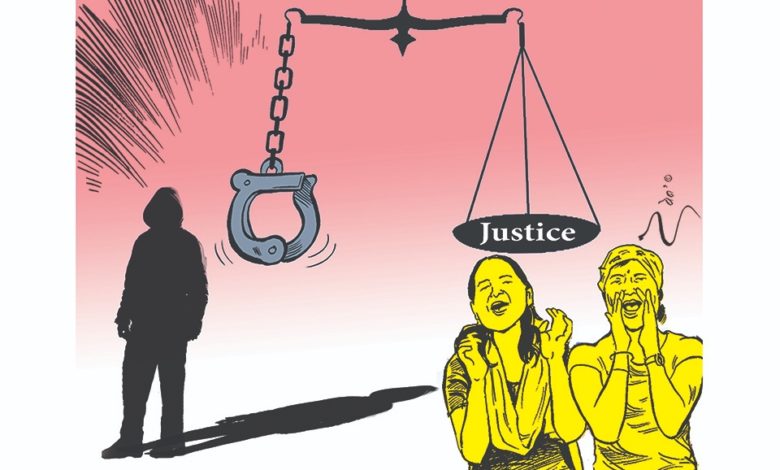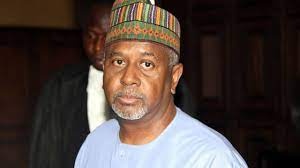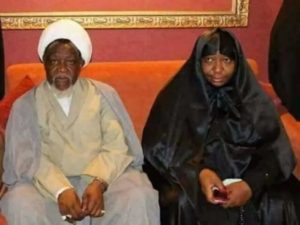Nigerian Government’s Culture Of Impunity Towards Court Orders
The rule of law in Nigeria is becoming subject to the dictate of those in authority as security agents await executive orders to validate court decisions.

When Miss Bukola Thompson was called to the Nigerian Bar in 2009, she was full of hope and vigour to bring justice to the oppressed and convince Nigerians that the law is indeed a viable tool for societal engineering. Her dream was to proceed from the bar to bench as a judge after 10 years post-call, to contribute her own quota to humanity and justice.
It’s been 13 years post-call for Bukola with many victories and legal heights in Court of Appeal and Supreme Court in Abuja, FCT where she resides; a feat many lawyers dream to achieve.
But Miss Thompson does not feel fulfilled enough to proceed to the bench. The frustration of enforcement of court decisions, disregard for court orders by those who deem themselves as above the law especially with the backing of the government; she now wants to opt out of law and start a business.
“What’s the essence of proceeding to become a judge when I can clearly see my future through those sitting at the bench? A system where the government threatens you to tilt judgement in their favour, and when you dare do the right thing and give the right judgement, they make mockery of the court with total disregard and contempt of court orders under the guise of state security, state affairs and lots of excuses,” she said.
The trend of government disobeying court orders
Nigeria’s ratification and domestication of various international human rights legal instruments creates obligation of enforcement and respect to court decisions whether internationally or locally, provided the stated legal conditions have been met.
The attitude of the Nigerian government in the way of partial enforcement or total disregard of court orders, as well as the constitution has made a mockery of the nation’s judicial process and stirred debate on the effectiveness and power of the rule of law.
The Buhari-led administration has occasionally come under attack for total disregard of court orders, particularly through the security agents and other law enforcement agencies answerable to the presidency, particularly when the government’s actions are challenged in court.
Although the Government of the Federal Republic of Nigeria accepts as compulsory without special agreement, the jurisdiction of the ECOWAS court, an African regional court created to adjudicate on all legal disputes centred on human rights through the Charter of the commission, cases abound where the Nigerian government refuses to obey the court’s order.
In 2016, ECOWAS court granted bail to Sambo Dasuki, a former National Security Adviser who was arrested in 2015 for an alleged offence of diverting funds meant for arms, but the Buhari-led administration through the DSS, refused to release him.

The continuous detention of Dasuki against the international court’s order prompted the Court of Appeal in Abuja in July 2019, to declare the continued detention of Dasuki by the DSS unlawful and unconstitutional with a fine of N5 million to be paid as compensation for breach of his fundamental human right. But Dasuki spent four years in detention before he was released despite a court order granting him bail.
Just like Dasuki’s case, the Nigerian government refused to enforce ECOWAS’ judgments for the provision of free and basic education for Nigerian children as enshrined under chapter two of the Nigerian constitution, in SERAP v. Federal Republic of Nigeria & Anor.
Nigeria, being a major funder of the ECOWAS court, incapacitates the court from ordering punitive measures against its non-enforcement of rulings despite ratification and domestication as provided under the Nigerian constitution.
Meanwhile, the Vice President of Nigeria, Professor Yemi Osibanjo, stated on Tuesday, August 31, 2021 that providing education to out of school children is not the responsibility of the federal government but that of the state government.
Asides international court orders, the Nigerian government is guilty of contempt and violating judgements of domestic courts.
There was the unconstitutional detention of islamic cleric, Ibrahim El-Zakzaky and his wife since 2015 without trial by the DSS, for alleged involvement in the clash between his followers and officers of the Nigerian army which resulted in the death of at least 347 members of the group and a soldier. The Federal High Court sitting in Abuja on Dec. 2, 2016 ordered the unconditional release of him and his wife from detention within 45 days aside the provision of accommodation and N50 million in damages. This court order was ignored.

A further notice of disobedience was issued against the Attorney General, Assistant Inspector General of Police, and the DSS for failure to comply with the order seeking their release, yet it was ignored.
El-Zakzaky and his wife were later released as confirmed in a HumAngle report on July 28 after being acquitted of the charges against them before the Kaduna State high court. “The act of disregard for prompt enforcement of court order makes a mockery of our judicial system,” Ayomide Ogunsakin, a human rights lawyer and retired lecturer of law in Lagos state, South-west Nigeria noted.
In the case of Gloria Okolie, 22, she was arrested on June 17, 2021 for alleged affiliation with a suspected member of the proscribed Indigenous People of Biafra (IPOB). Her bail had been granted by an Abuja High Court since Aug. 27, 2021 with the ultimatum of release on or before Sept. 31, 2021. But she is still in detention.
Rather than obey the court order, the Nigerian Police Force approached the court to reverse the bail order for the release of Okolie. The court further upheld the release order.
While in police detention, Okolie had allegedly been used as a slave, abused, and tortured by the officers in charge of her detention.
Again, the continuous detention by the DSS of four out of the 12 followers of Sunday Adeyemo, popularly known as Igboho, the Yoruba nation seperatist leader, who were granted bail by the court as reported by HumAngle, is an act of contempt and disregard for judicial orders.
FG’s Justification for its disobedience
The federal government of Nigeria had always come up with excuses to justify its disobedience of court orders.
In Dasuki’s case, the Attorney General of the federation, Abubakar Malami stated that when a personal right clashes with public rights, then the government is safe to infringe on such right. He said, “Mr Dasuki is a matter of public interest overriding an individual’s rights.”
President Muhammadu Buhari during the 58th annual conference of the Nigerian Bar Association while speaking on various issues, most prominent of which was his view on the rule of law and national interest said, “Rule of Law must be subject to the supremacy of the nation’s security and national interest.”
Experts react
A senior advocate, Mike Ozekhome, had described the government’s stance as “outright impunity.”
Chijioke Okoli, another Senior Advocate, also said: “The government and the attorney general cannot be the court. This government came into power by acts of law. And if it chooses to disregard court orders, that is lawlessness and it is an invitation to anarchy. This government is a government of law.”
The court also opined in the Moukhtar Ibrahim Aminu versus the Government of Jigawa State and 39 others that, “A country like Nigeria should tow the path of honour and responsibility in enforcement of the law whether or not it is in her favour.”
Olumide Akpata, President of the Nigerian Bar Association (NBA), recently fumed with concern and disdain over the wanton use of senior lawyers and judicial officers by government agencies to mock judicial processes through contradictory court decisions.
Despite Nigeria’s attitude to court orders, particularly the African regional international courts, Vice President and senior advocate Yemi Osibanjo on Friday Sept. 3, 2021 at the Tanzanian office of the African Union (AU) judicial agency expressed strong faith in the work of The African Court on Human and Peoples Rights with respect to the protection of human rights in Africa.
- Asteriks was used against altered names of some lawyers to protect their identity.
Support Our Journalism
There are millions of ordinary people affected by conflict in Africa whose stories are missing in the mainstream media. HumAngle is determined to tell those challenging and under-reported stories, hoping that the people impacted by these conflicts will find the safety and security they deserve.
To ensure that we continue to provide public service coverage, we have a small favour to ask you. We want you to be part of our journalistic endeavour by contributing a token to us.
Your donation will further promote a robust, free, and independent media.
Donate HereStay Closer To The Stories That Matter




